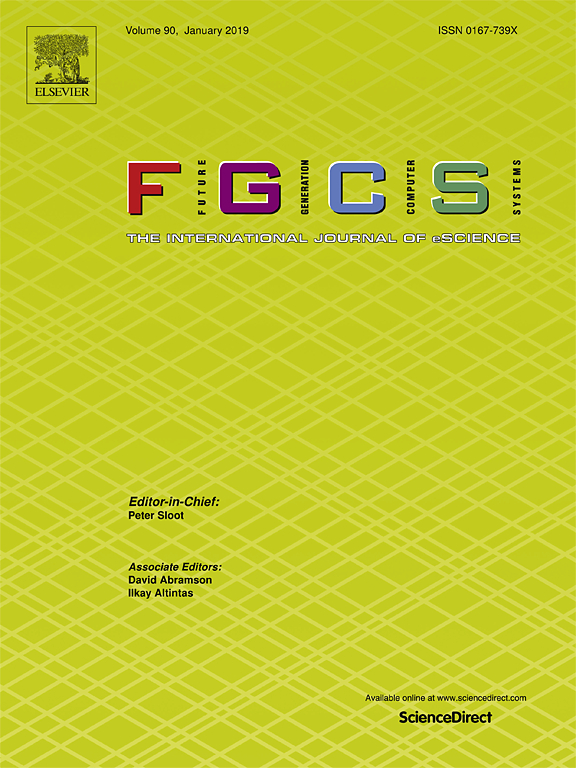Editorial Board
Contents
CGLXTouch: A multi-user multi-touch approach for ultra-high-resolution collaborative workspaces
Using a private desktop grid system for accelerating drug discovery
A systematic approach to the integration of overlapping partitions in service-oriented data grids
Grid design for mobile thin client computing
Web services workflow with result data forwarding as resources
Active rule learning using decision tree for resource management in Grid computing
Mining massive datasets by an unsupervised parallel clustering on a GRID: Novel algorithms and case study
Processing moldable tasks on the grid: Late job binding with lightweight user-level overlay
Special Section: The third provenance challenge on using the open provenance model for interoperability
The Open Provenance Model core specification (v1.1)
Representing distributed systems using the Open Provenance Model
W3P: Building an OPM based provenance model for the Web
Provenance management in Swift
Storing, reasoning, and querying OPM-compliant scientific workflow provenance using relational databases
Analysis of approaches for supporting the Open Provenance Model: A case study of the Trident workflow workbench
Linked provenance data: A semantic Web-based approach to interoperable workflow traces
Mapping attribution metadata to the Open Provenance Model
Workflows to open provenance graphs, round-trip
Special Section: Grid and pervasive computing (selected papers from 2010 International Conference on Grid and Pervasive Computing)
CPRS: A cloud-based program recommendation system for digital TV platforms
A new distributed and hierarchical mechanism for service discovery in a grid environment
Variable-sized map and locality-aware reduce on public-resource grids
Collaboration of reconfigurable processors in grid computing: Theory and application
Online scheduling of workflow applications in grid environments
Adaptive resource provisioning for read intensive multi-tier applications in the cloud


